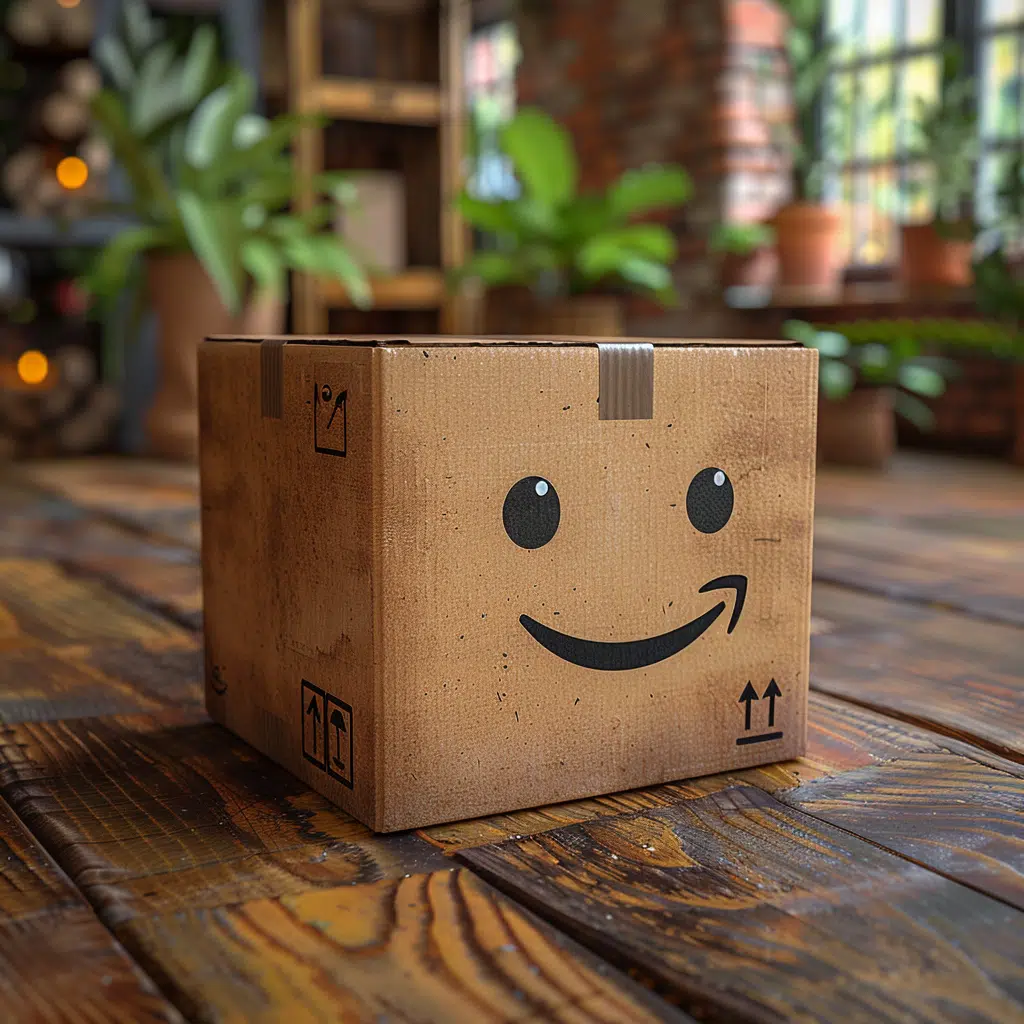When you’re in the throes of transforming a space, be it your garage turned startup hub or your industrial-chic office, the underfoot unsung hero often comes into play: the epoxy floor. But here’s the catch—as much as this stalwart surface notches up style credits and durability points, it can also tug on the purse strings. So, how do you navigate the intricate dance between cost and quality? Strap in, dear entrepreneurs, for a deep dive into the shiny world of epoxy floors where “you get what you pay for” rings truer than ever before.
The Rise of Epoxy Floors in Modern Architecture
Epoxy floors have been shimmering their way through architecture’s annals for quite some time. Originally the darling of industrial spaces for their resilience, they’ve moonwalked into residential and commercial realms, dazzling with their versatility and sheer range of aesthetics. Why epoxy over traditional flooring types? It’s simple: durability meets bespoke beauty. These floors are the chameleons of their trade, offering sleek finishes in residential homes, rugged reliability in warehouses, and everything in between.
The Epoxy Floor Market: Understanding Your Options
Much like shopping for a car or fine suit, the epoxy floor market offers a spectrum of options, from the utilitarian to the Roll Royce of coatings. Rust-Oleum and Behr have cornered the consumer market, becoming household names synonymous with quality. Yet, on the flip side of the coin, boutique providers are popping up like gourmet food trucks, offering personalized, high-end epoxy experiences. These artisans of epoxy are setting the bar sky-high, leaving us wondering about the true impact of brand power on quality standards.
| Feature | Details |
|---|---|
| Cost | – Average: $3-$12 per square foot (US) – Can reach £20/m2 to £150/m2 (UK) for specialized finishes – Generally pricier than laminate, vinyl, or concrete |
| Composition | – Consists of resin and hardener – Synthetic resin laid on concrete substrates |
| Durability | – Lasts between 10 and 20 years – Superior to painted concrete – Thickness, use, and maintenance affect lifespan |
| Maintenance | – Requires proper maintenance for longevity – Can last over 10, sometimes 20 years with care |
| Application | – Can be poured over concrete, wood, etc. – Applied in various layers |
| Slipperiness When Wet | – Potential hazard in high-traffic/damp areas |
| Repair Difficulty | – Challenging to repair once damaged |
| Moisture Sensitivity | – High moisture levels can cause failure – Soft or chalky concrete might fail under stress |
| Suitability | – Ideal for garage floors, industrial and commercial spaces |
| Aesthetic Appeal | – Can modernize dull concrete floors – Variety of finishes and colors available |
| Cost Compared to Others | – More expensive than some alternatives, but offers longevity and durability – Can be cheaper than flooring replacement options in the long run |
| Installation | – Professional installation recommended due to complexity and precision required |
| Market Availability | – Wide range of brands and qualities available |
| Customization | – Color and pattern customization possible – Metallic and other specialized finishes available at higher costs |
| Environmental Factors | – May require special disposal due to chemical content |
| Safety Features | – Non-slip additives can be incorporated to reduce slipperiness when wet – Fire-resistant properties |
Mapping Out the Cost Landscape of Epoxy Flooring
Alright, let’s talk turkey. Epoxy flooring can swing from the pleasantly affordable to the splurge-worthy. A DIY kit might wink at your wallet, but professional installations with intricate mandalas can have you coughing up serious dough. Floor size, complexity, and your flair for the dramatic (think: glitter inlays or brand logos) skew the cost. Surveying the landscape, epoxy’s price tag ranges from $3 to $12 per square foot, and while brands like Emma supplement command premium prices, the proof, as they say, is in the proverbial pudding.
Measuring the Quality of Epoxy Floors
Quality in epoxy floors isn’t just about the glossy finish that catches your reflection. It’s a saga of what lies beneath—the craftsmanship, the curing drama, and the ability to withstand the daily stampede. Epoxy’s Achilles’ heel? It can be akin to an ice rink when wet and a star-crossed lover to repair when damaged. Yet, multimillion-dollar facilities and work-from-home warriors alike sing paeans to well-installed epoxy.
Balancing Cost and Quality: Is it Worth Paying More for Premium Epoxy?
Delving into the tug-of-war between splurging on premium epoxy or tightening those purse strings yields one truth: premium can pay off. Considering the lifetime of an epoxy floor ranges from a decade to a double, sometimes shelling out more upfront can save a scenic penny in the long run. Facility managers and DIY conquerors share anecdotes of investments that have either flourished like a Fidavi portfolio or withered, emphasizing that you can’t cut corners on a round floor.
Maintenance Matters: The Hidden Cost of Low-Quality Epoxy Floors
Speaking of longevity, the high-quality epoxy isn’t a prima donna demanding constant upkeep. In fact, maintenance can be as simple as a sweep and a mop. But skimp on the quality, and you’re playing Bob the Builder with frequent touch-ups and fixes. Users of budget-friendly versions are often caught in a web of “If you think hiring a professional is expensive, try hiring an amateur.”
The Future of Epoxy Flooring: Trends and Innovations in Cost-Quality Balancing
With each sunrise, innovations in epoxy are rolling out faster than a Montecristo cigar at a high-stakes poker game. Technological leaps are democratizing access to the good stuff—high-quality epoxy floors at less villainous prices. Imagine smart epoxies that signal wear or self-healing concoctions that cure minor scratches. The future is an open road, and we’re speeding toward a horizon where the cost-vs-quality scale tilts in favor of the consumer.
Making the Decision: Selecting the Right Epoxy Floor for Your Needs
Now, don’t rush to dial up the nearest epoxy installer. There’s groundwork to be done—factoring in the environmental stresses, the foot traffic forecast, and, of course, your brand persona. Vet providers like a Megan Stalter comedy set—detail is key! Quell the impulse to accept face value, and scrutinize the quotes like a detective novel for those devilish hidden costs.
Conclusion: The Verdict on Epoxy Floors’ Cost vs Quality
Entrepreneurs, hustle-titans, and decor enthusiasts, the eternal struggle between epoxy cost and quality is a dance you lead. Keep your eyes peeled, your budget tight but pliable, and make the informed decision your future self will thank you for. Remember, in a world where What time Is Trumps arraignment becomes dinner table talk, a choice like epoxy—a blend of aesthetics, performance, and cost—is a testimony to the thoughtful business leader. Lean in to the dilemma of epoxy floors, for the surface you choose today holds up the empire you build tomorrow.
The Insider Scoop on Epoxy Floors
When it comes to the burgeoning question of epoxy floor investments, homeowners often find themselves walking a tightrope between affordability and longevity. But before you get in a sticky situation weighing cost versus quality, let’s slide into some fun facts that might just cement your decision. For starters, it’s fascinating to note that the history of epoxy resin dates back to the 1930s—yes, it’s been sticking around for quite some time! And speaking of time, did you know that the curing process of an epoxy floor can be a real ticking clock? Depending on the mix, it might take a blink or feel like you’ve waited a season—specifically, it could mirror the anticipation of waiting for Fionna And Cake season 2, with fans sometimes needing the patience of a saint to see the hardening finish line.
Did You Know?
Well, hang on to your hard hats because there’s more. Epoxy floors are renowned for their resilience, and this quality often leads them to be the first choice in spaces where the going gets tough. Their resistance to everything from chemical spills to high heels makes them as tough as a savvy step sister facing the world head-on—unyielding and ready for anything. Transitioning from toughness to flexibility, though, it’s worth noting that the versatility of epoxy floors allows for a kaleidoscope of customization options. Want a floor that reflects the cosmos or looks like deep-sea marble? You betcha, epoxy can make that happen!
While mulling over these surprising tidbits, there’s one more nugget that might floor you and it has to do with loans—not the boring paperwork kind, though. Believe it or not, the condition of your home’s flooring can impact specific loan guidelines. For instance, during an FHA loan inspection, if your flooring is deemed inadequate, it could end up being a deal-breaker. And if you’ve ever glanced through the Fha Student Loan Guidelines, you know that housing standards can be a critical checkbox in the loan approval process. Who knew epoxy floors could possibly have a hand in making your dream home a reality or be a stumbling block in your mortgage journey?
So, while you’re pondering the cost versus quality conundrum, chew on these trivia tidbits. An epoxy floor indeed carries its weight and might just be the game-changer in how your home rolls out the welcome mat to both guests and lenders alike. After all, it’s not every day that a building material doubles as a conversation starter and a potential investment strategy!
What are the disadvantages of epoxy flooring?
– Yikes, diving into epoxy flooring can hit your wallet pretty hard! With a price point that might double that of concrete, costliness is a key downside. Plus, keep in mind that a wet epoxy floor could turn into a slip ‘n’ slide, and patching up any damage isn’t a walk in the park.
Is epoxy flooring a good idea?
– Well, it’s a bit of a balancing act. Epoxy flooring, while more of a splurge than laminate or vinyl, packs a punch in the durability department. It’s a long-lasting champ that stands its ground way longer, so it’s a pretty savvy pick if you’re okay with the upfront cost.
Is epoxy cheaper than flooring?
– Alright, let’s break it down—epoxy isn’t always the budget’s best friend, especially when stacked against options like laminate. But, it’s got a sweet spot price-wise, rangin’ from $3 to $12 per square foot. So while it’s not the cheapest dance partner out there, it’s still in the running.
How long do epoxy floors last?
– Looking down the line, epoxy floors are marathon runners, lasting anywhere from 10 to 20 years with proper TLC. That’s leaps and bounds ahead of a painted concrete floor that’ll throw in the towel in the hustle and bustle of heavy foot traffic.
When should you not use epoxy?
– Hold your horses before jumping on the epoxy train! If your floor’s got a moisture issue or if the concrete’s gone all chalky on you, well, that’s just asking for trouble. Your shiny epoxy might end up stuck to your tires instead of the floor, and nobody wants that mess.
What flooring is better than epoxy?
– In the world of floors, it’s like asking what’s better than grandma’s apple pie. But seriously, if longevity and strength are your jam, epoxy’s a heavy hitter. Still, if you want something that might be easier to repair or switch up, materials like vinyl or ceramic tiles might win that round.
Is tile or epoxy cheaper?
– Well, let’s chat numbers. Epoxy can range from affordable to fancy pants, while tile can vary wildly too. But if we’re talking plain Jane tile, sometimes epoxy can take the cake for being less spendy. It really boils down to the specifics, you know?
Can I do epoxy floor yourself?
– Dreaming of a DIY epoxy adventure? I’m not gonna sugarcoat it—it’s tough stuff, with prep work and precision being key. But hey, if you’re the handy type with time to spare, you could give it a go. Just don’t wing it, unless you fancy a potential mulligan.
Can you epoxy over concrete?
– Can you? Absolutely! Epoxy loves to cozy up over concrete, giving it a makeover that’s both resilient and snazzy. Just make sure that concrete is clean, dry, and ready to mingle with its new epoxy overlay.
How much epoxy do I need for 1000 square feet?
– Ready to play the numbers game? For 1000 square feet, you’re looking at a whole bunch of epoxy, buddy. Specific amounts depend on the epoxy’s thickness and the manufacturer’s recommendation, so grabbing the ol’ calculator and the product specs is your best bet.
Can you epoxy over tile?
– Thinking about playing matchmaker with epoxy and tile? You bet you can! Epoxy can waltz right over tile, covering up old-fashioned styles with a glossy new look. Just make sure those tiles are stuck down tight and prepped properly.
Do epoxy floors add value?
– Adding epoxy floors to your place is sort of like putting on a snazzy suit—it can definitely spruce things up and add some value, especially in spaces like garages or basements that get a lot of mileage.
Can epoxy floor be done in one day?
– Finishing an epoxy floor in one day? That’s pushing it, friend. while the actual pouring might wrap up, the devil’s in the drying. Epoxy’s gotta take its sweet time to cure, and that’s not usually a same-day deal.
Do epoxy floors crack?
– Do epoxy floors crack? Not to sound wishy-washy, but it depends. Epoxy itself is pretty tough, but if there’s movement or issues with the underlying floor, those pesky cracks can make an unwanted cameo.
Do epoxy floors peel?
– Epoxy floors peeling? Oof, it’s not common, but it happens when the preparation’s been given the short shrift or if the floor takes a hit from some serious moisture or chemical troubles.
What health problems can epoxy cause?
– Let’s not beat around the bush—working with epoxy can throw a wrench in your health if you’re not careful. Fumes during application are no joke, possibly causing skin and eye irritation, and all that jazz, so gear up with PPE and keep that space ventilated!
Does epoxy floor scratch easy?
– Does epoxy floor scratch easy? It’s kind of a middleweight—tougher than paint but not Superman. You might see some scratches over time, especially if it’s a high-traffic area or if sharp objects drop by unannounced.
Is epoxy high maintenance?
– Is epoxy high maintenance? Not exactly, it’s sort of “middle of the road.” Keeping it spick and span isn’t rocket science—a mop and some mild soap will do the trick, and a little elbow grease from time to time keeps it looking sharp.
Can you epoxy over hardwood floor?
– Can you epoxy over hardwood floor? Sure thing, but it’s like putting a modern jacket on a classic shirt—it’s doable but prep work’s a must. And think it through; it’s quite the commitment, sort of like a tattoo for your floor.
























